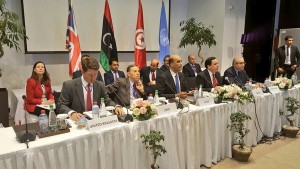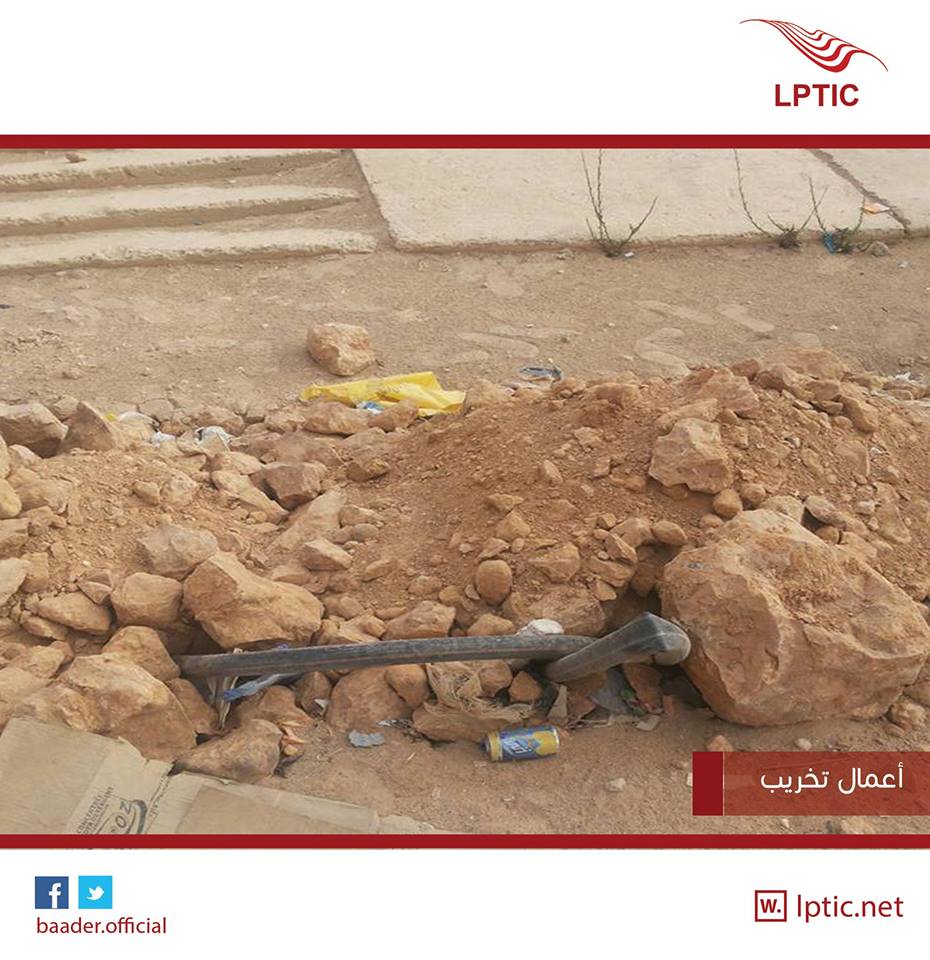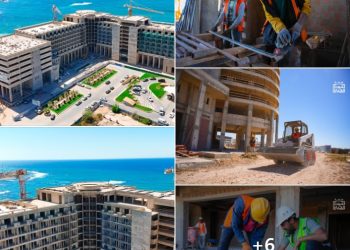By Libya Herald reporters.

Tunis, 12 April 2016:
The international community is offering Libya and the Government of National Accord a substantial range . . .[restrict]of projects worth at least $448 million over the next five years.
Some 31 of the 172 projects listed today at a conference in Tunis, hosted jointly by UNSMIL and the UK, have not yet been allocated funds, so the the total amount finally on offer could approach the half a billion dollar mark. The list of plans runs to 82 pages.
A few of the projects, such as the EU’s $5-million SeaHorse anti-people-smuggling programme from the Spanish Civil Guard, are of some years standing but have been suspended because of the chaos into which the country has descended.
But over and above the old money and stalled programmes, some $21 million of urgent new funding is being channeled through the United Nations Development Programme which launched its Stabilisation Facility for Libya at today’s event. GNA planning minister-designate Taher Al-Jehaimi was a signatory to the accord, which the UNDP described as providing the new government with “very visible and tangible quick wins to the population at a local level”.
Today, the German delegation pledged $11.3 million over two years, the same period as for the USA’s $4 million. The Italians put up $2.27 million, the Qataris $2 million, the UK $1 million and the Swiss $250,000.
Prime minister-designate Faiez Serraj or one of his nominees will chair the facility’s board along with the UN. A diplomat at the conference told the Libya Herald: “One very important aim is to push funding quickly out to the municipalities who nearly all have elected councillors and mayors. They have been crying out for money. They are set up to spend it usefully”.
The UNDP cash is being earmarked to fix damaged public infrastructure, including hospitals and clinics, police stations, water supply and waste treatment centres as well as electricity distribution. Funds will also be available to help restart businesses wrecked in the fighting. UNDP highlighted the importance of getting all bakeries working again.
In addition to economic recovery, repairing infrastructure and restoring basic services, delegates also focused on migration, governance, human rights and the media. Though there was no specific discussion of how the international community could assist with security, it was accepted that this had to be a priority if the long list of projects was going to have any chance of being tackled.
Christian Hunt, the British Foreign Office’s MENA was only the first of a number of speakers to refer to the momentum that had been gained by the arrival of the Presidency Council and the need to capitalise upon as quickly as possible.
There was no discussion in the course of the day about enabling Libya to contribute to its own recovery by making available any part of the Libyan funds currently frozen by the UN.
The conference drew delegates from 41 countries, 18 UN bodies as well as the Arab Fund, Arab League, EU, IMF, the World Bank and, slightly oddly, the International Atomic Energy Agency. It was a follow-on from a UNSMIL/UK- chaired donor meeting held in London last October. [/restrict]








